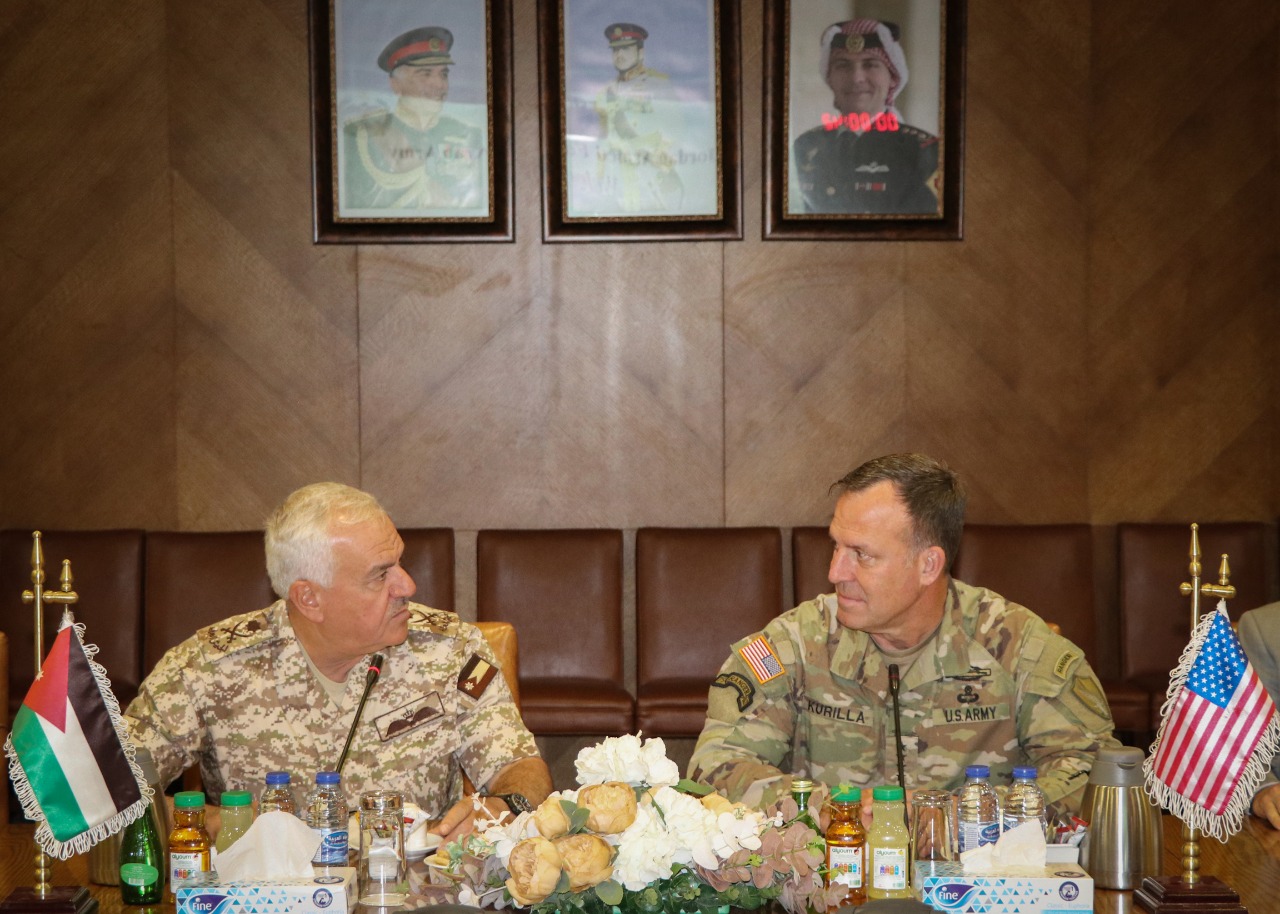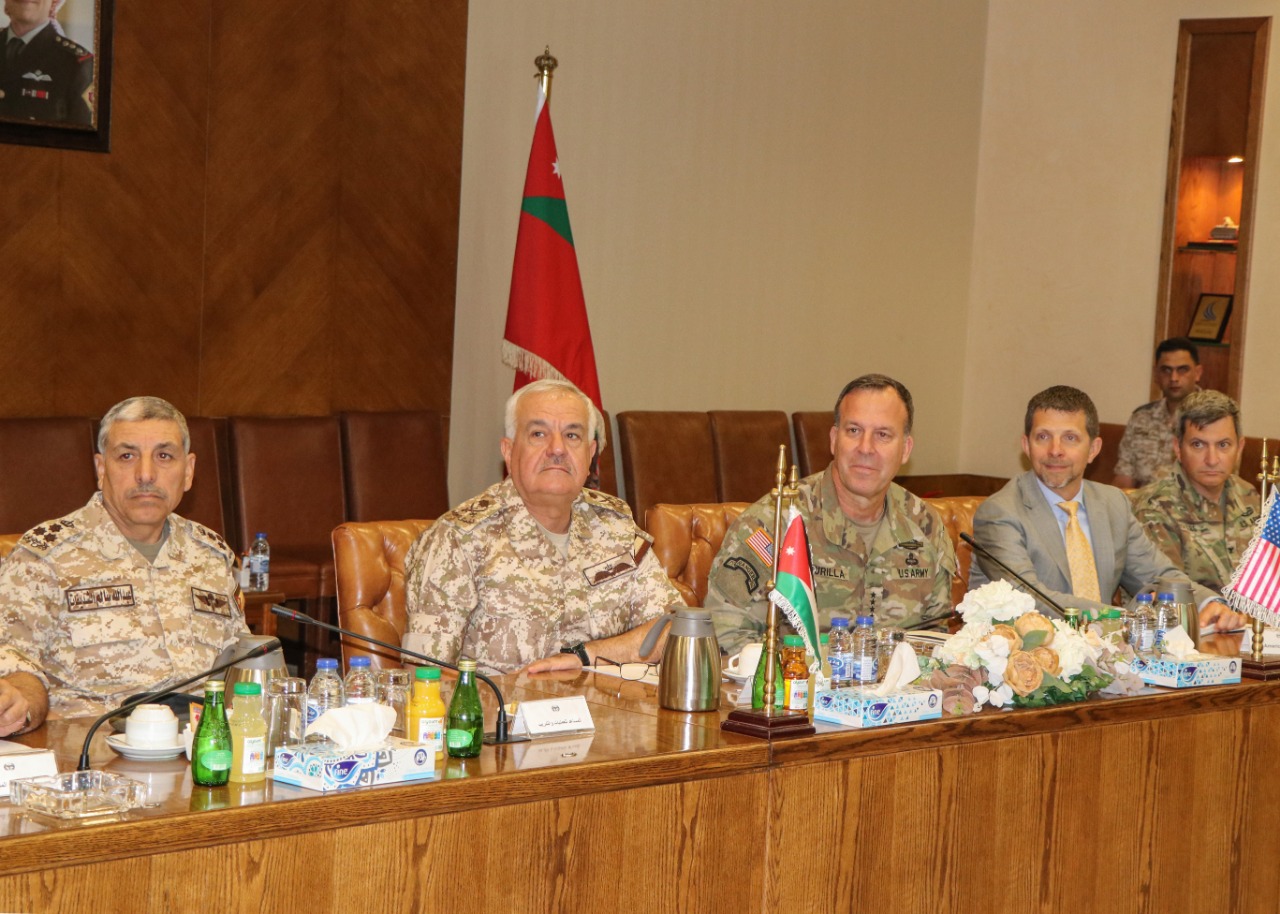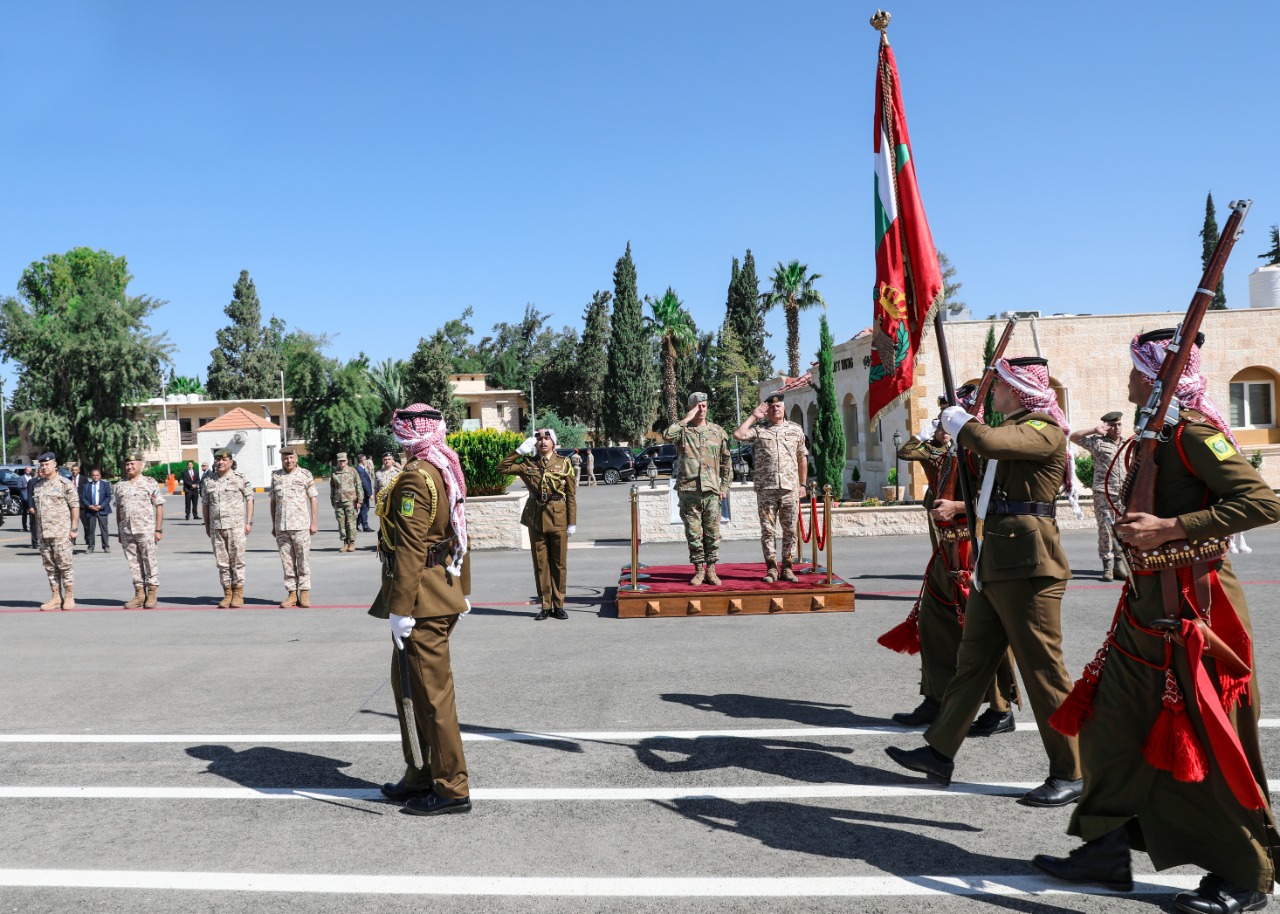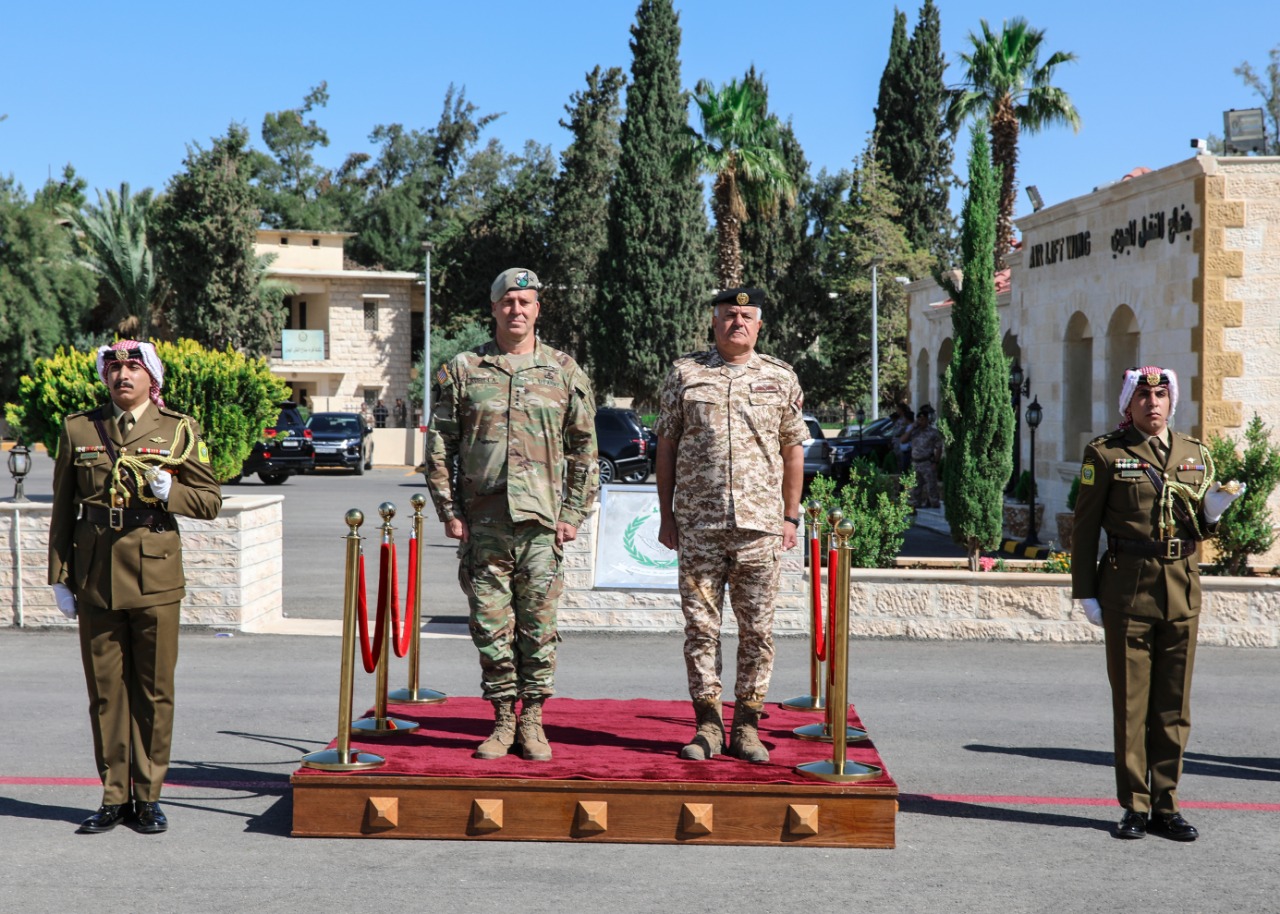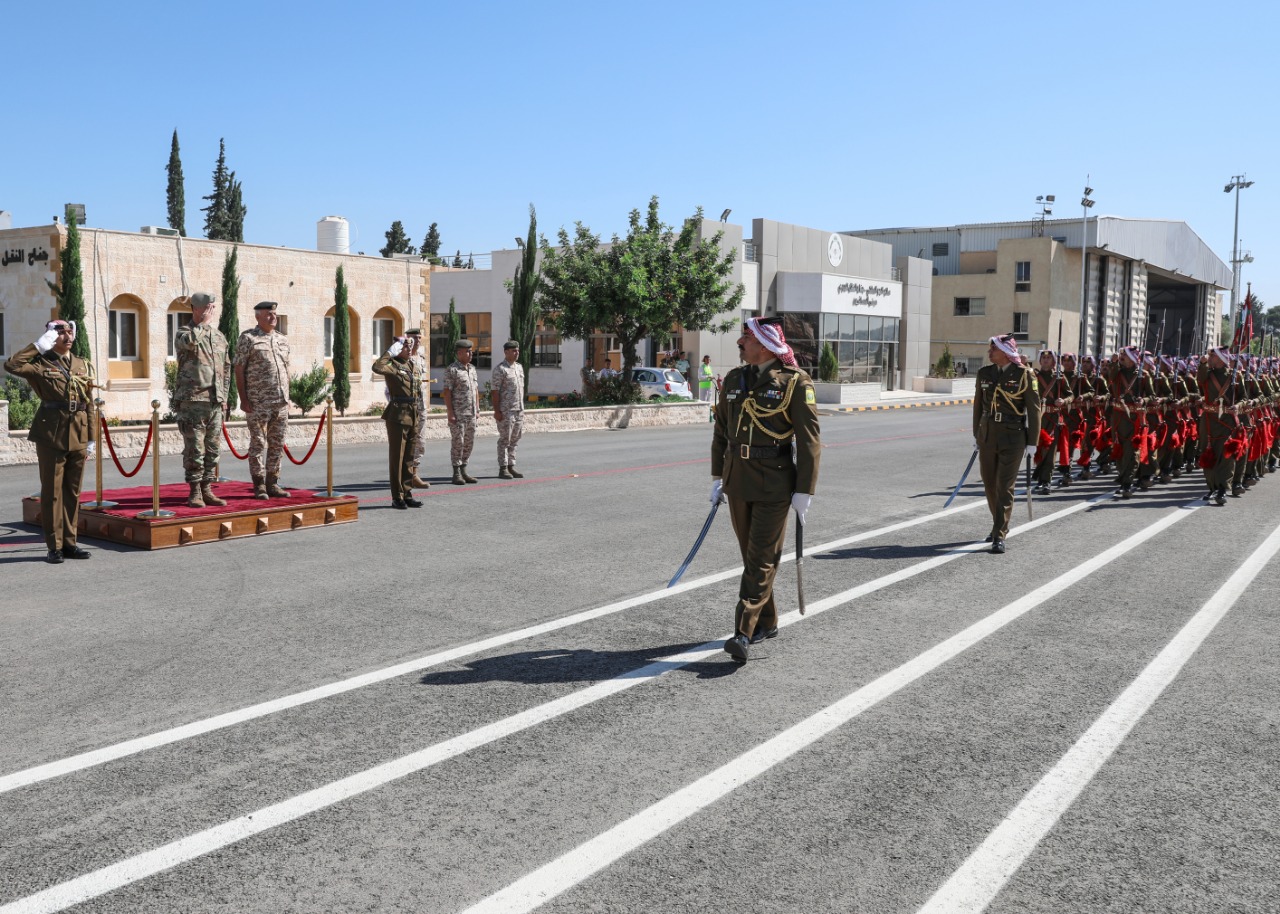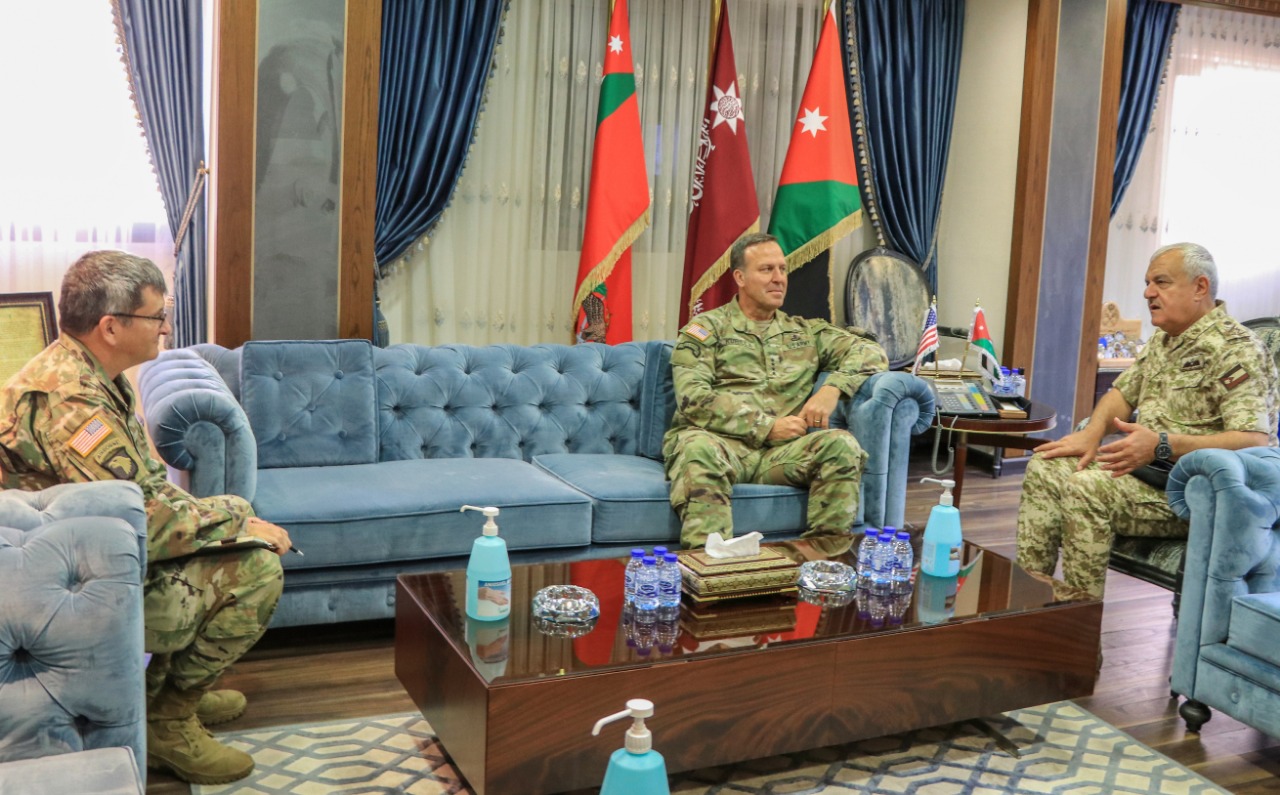- Local News
- Sat-2022-05-21 | 06:31 pm
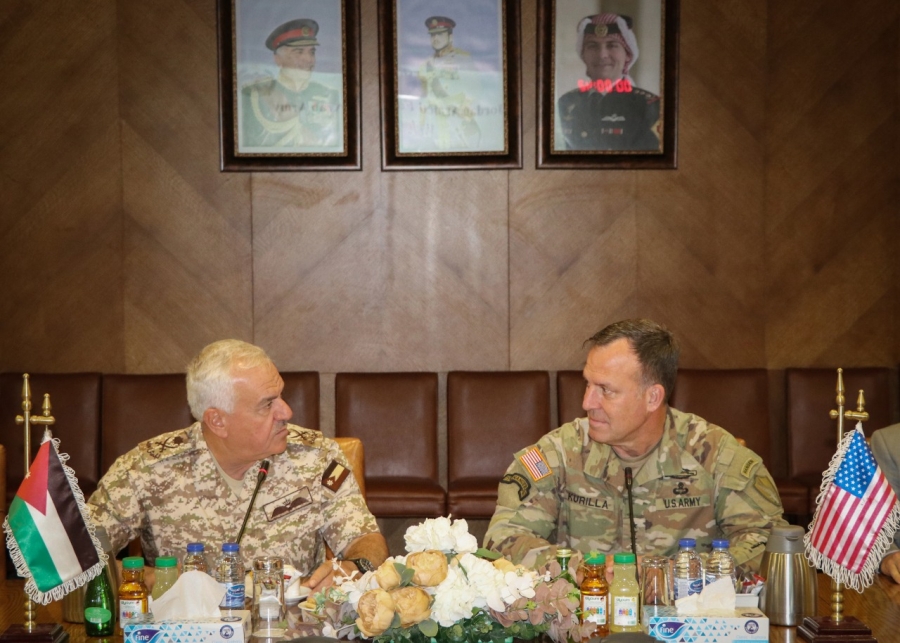
Nayrouz News Agency :
General Kurilla: The relationship between the United States and Jordan lasted for 70 years, and it is a strong strategic relationship.
General Kurilla: This strong partnership is essential not only to our ongoing efforts to defeat violent extremist organizations but also for broader stability in the region.
General Kurilla: The US Central Command appreciates the leading role that Jordan plays in preserving peace and moderation in the region
The Commander of the US Central Command, General Michael "Erik” Kurilla, stressed the depth of the relationship between the United States and Jordan and that it is a strong strategic relationship, this came during a press interview he had with the Director of Military Media, Colonel Mustafa Abdul Halim Al-Hiyari While visiting Jordan, and the following is the full text of the interview.
•General – What do you see as the major opportunities in the US relationship with Jordanian forces?
Mostafa, thank you for this question. This is, for us, a very important subject and it is, for me, a particular point of emphasis.
As you know, Mostafa, relations between the United States and Jordan go back more than 70 years. The Hashemite Kingdom of Jordan has been a strong ally for decades.
Because of the diversity of culture and society across the kingdom, Jordan has an unmatched ability to engage stakeholders from different cultures and points of view. Thanks to the leadership of King Abdullah II and the capabilities of the Jordanian Armed Forces, the kingdom continues to serve as a reliable strategic partner and a bulwark for regional peace and stability.
Jordan is among our most committed partners in the Middle East – this was made clear during the battle against ISIS. This ironclad partnership is essential not only for our ongoing effort to defeat violent extremist organizations but for the broader stability of the region.
During my visit, I spoke with Major General Yousef Huneiti about opportunities to enhance our partnership. We spoke also about what ways in which we can address and attack the evil ideology underpinning violent extremist organizations -- a very big problem for the region. There are opportunities between our militaries to address these issues.
One point about which I am concerned is the camp for the internally displaced in al Hol, northeast Syria. I’ve been very public about my concerns on this; the world needs to know about the growing hazard. The region needs to know about this looming threat. This camp houses approximately 56,000 people, most of whom are under age 18. Many of these are Families of Islamic State fighter who were killed or captured in the war. This camp, which I visited last month, is a literal breeding ground for ISIS: 10 children are born there every day, 300 each month. While security at the camp is improving, an organized international response that would return Families of Islamic State foreign fighters to their home countries is required to prevent this ticking time bomb from going off.
We are also looking at ways to improve Eager Lion, our annual joint exercise in Jordan. As you know, we’ve been participating in Eager Lion for more than 10 years and it is a critical opportunity for us each year. The next exercise, scheduled for September of this year, will focus on counterterror operations, integrated air and missile defense, maritime security, and border security. So, Eager Lion is another opportunity for our militaries and another topic of discussion yesterday.
But, really, Mostafa, for me this visit was about building relations. I am thinking in the long-term here in my discussions with Jordan, and I will return many times. As I told General Huneiti and his staff, I am visiting each of the countries in the CENTCOM area of responsibility – well, all but one – for dialogue and discussion. Really, I want to see the opportunities, but I also want to see what I refer to as the "gaps” in our relationships: what are the challenges? Where can we strengthen this security partnership? Where do I need to apply leadership to improve things for our partners?
It is important that as partners we have difficult conversations about security in the region. Our countries will not agree on everything. Our militaries will not agree on everything. We must be honest and transparent in our dialogue so that we can work through rough areas.
•Do you think the current political situation in Middle East will affect the military partnership between the US and Jordan?
The partnership between CENTCOM and the Jordanian Armed Forces is a strong one. I seek opportunities to strengthen this strategic relationship even further in the coming months and years. CENTCOM appreciates the leadership role that Jordan plays in advancing peace and moderation in the region
•What were some of the highlights from your visit to Jordan?
I received an excellent briefing from General Yousef Huneiti’s staff. It was an opportunity for me to engage in a dialogue and an exchange of ideas. This visit was also an opportunity for me to spend time engaging with General Huneiti.
I strongly believe in strengthening relationships; interpersonal engagements are important to me. In this part of the world, relationships matter. The United States and the Hashemite Kingdom of Jordan will need to draw off this relationship into the future
As I told the leadership at the Royal Jordanian Armed Forces headquarters: we are a security partner for Jordan and we want to strengthen relations.









